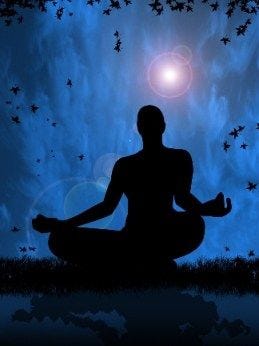Stone walls do not a prison make – having Stress without Distress
Stress is a common occurence in everyday life. Change is the constant in every person’s life, and change brings stress – some positive but mostly negative stress. It leads to anxiety and anger and often to violence. Those are the outward effects. The most terrible, however, is the internal threats to the body and brain. Fortunately, there are various methods to help resolve the stress you experience, from therapy, to exercise to medication, and some may find using one method more reliable than others. For instance, many people find that using “CBD” products can reduce their everyday stress and relax the body. You can find CBD products since sites like CBD Queen offer wholesale supply at discount prices. Whilst CBD products have been known to work for some people, others find that these products aren’t always strong enough to fully relax them. If this is the case, it might be worth investigating a substance known as “shroom webn“. I’ve heard that in very small doses, it can have a great impact on stress as well as one’s ability to relax. Different products normally offer different benefits, so it’s important to look at this online dispensary canada, for example, to find an alternative medicine for your current situation. Hopefully, one of these will have more of an impact, helping you to lower some of this negative stress. It is important to find what is right for you and your body, it helps to understand what is happening inside yourself.
Over 1500 chemical changes occur due to repeated or prolonged negative stress, and can lead to exhaustion and loss of energy and finally to increased incidence of disease. [Source: “The Power of 5”, Author: Bloomfield and Cooper]
Pituitary glands and the nerve impulses trigger increase in creation of adrenalin and cortisol. While the latter increases the numbers of blood platelets, the former increases their stickiness – thus forming a very formidable weapon against the heart, arteries and the brain!
Continuous hitting of the brain and heart with the hormones and sticky platelets, makes the heart muscles weak and killing brain cells.
Hans Selye, a Canadian endocrinologist of Austro-Hungarian origin and Hungarian ethnicity, had discussed 4 stages/effects of stress:[1]
1. Alarm
2. Adaptation
3. Fatigue/exhaustion
4. Death
At the first stage, we use different ways to respond to the alarm in the body (via chemical and physiological reactions). This leads to numbing of the system as we repeatedly try to “brush away” the stress through escapes. Repeated adapting of the body leads fatigue and exhaustion and finally leading to death. [a story in our school books once had a great line ” ” meaning stress is like death pyre. The difference between (stress) and (pyre) is only a bindu(or a dot)!!]
In this it is fairly obvious that how we respond to the alarm is the most important part of Stress management. Its not the intensity of the stress but our ability to respond with equanimity that makes us better handle our future in face of stress.
The best way to respond to stress is to relax your mind and body. Here are three useful relaxation techniques:[2]
Autogenic relaxation. Autogenic means something that comes from within you. In this technique, you use both visual imagery and body awareness to reduce stress. You repeat words or suggestions in your mind to help you relax and reduce muscle tension. You may imagine a peaceful place and then focus on controlled, relaxing breathing, slowing your heart rate, or different physical sensations, such as relaxing each arm or leg one by one.
Progressive muscle relaxation. In this technique, you focus on slowly tensing and then relaxing each muscle group. This helps you focus on the difference between muscle tension and relaxation, and you become more aware of physical sensations. You may choose to start by tensing and relaxing the muscles in your toes and progressively working your way up to your neck and head. Tense your muscles for at least five seconds and then relax for 30 seconds, and repeat.
Visualization. In this technique, you form mental images to take a visual journey to a peaceful, calming place or situation. Try to use as many senses as you can, including smells, sights, sounds and textures. If you imagine relaxing at the ocean, for instance, think about the warmth of the sun, the sound of crashing waves, the feel of the grains of sand and the smell of salt water. You may want to close your eyes, sit in a quiet spot and loosen any tight clothing.
Basically they are taken from meditative approaches. You can also try Yoga etc. Finally remember this last stanza from Richard Lovelace’s classic and celebrated poem “To Althea, From Prison”.[3]
Stone walls do not a prison make,
Nor iron bars a cage;
Minds innocent and quiet take
That for an hermitage;
If I have freedom in my love
And in my soul am free,
Angels alone, that soar above,
Enjoy such liberty.
Reference Links:
1. The Brain-body Connection of Stress
2. Relaxation techniques: Learn ways to calm your stress
3. To Althea, From Prison




